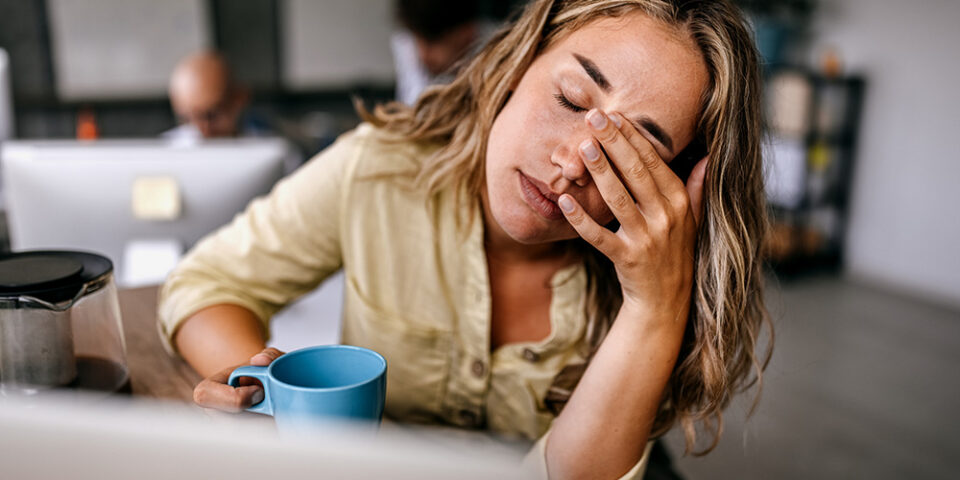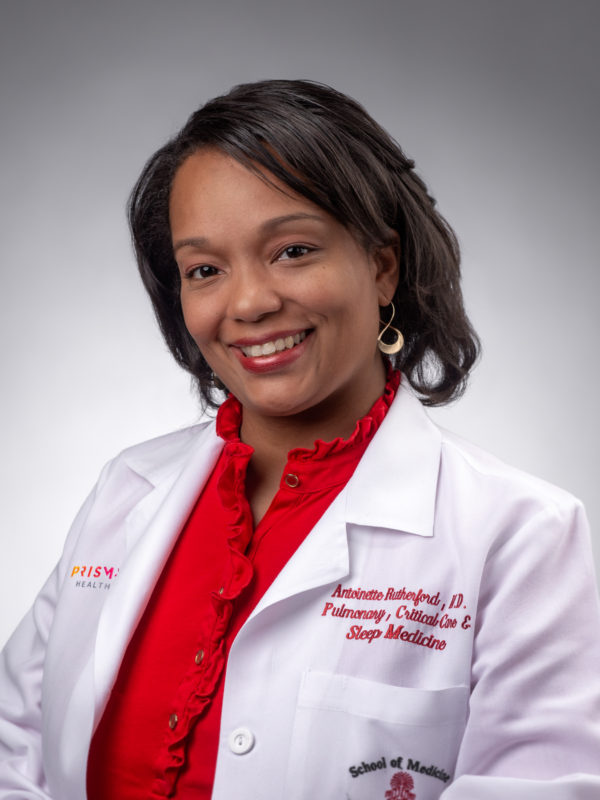Sleep deprived? Here’s how missing sleep harms your health
If you feel like you never get enough sleep, you are definitely not alone. According to the Centers for Disease Control and Prevention, more than a third of U.S. adults are not getting the recommended amount of sleep. Not only can living sleep deprived lead to serious injuries such as car crashes, but it can have a real impact on your overall health.
Sleep medicine specialist Antoinette Rutherford, MD, explained why sleep is important to your health, how sleep deprivation can harm and what you can do to get more ZZZs.
How much sleep do you need and what happens if you don’t get it?
How much sleep you need depends on your age, but most adults require about eight hours of sleep a night. Even missing just one night of restful sleep can affect your reaction time and your ability to deal with stress. The longer sleep deprivation continues, the worse it gets.
“If you go a day or two with minimal sleep, you’ll start to feel an effect similar to drinking and driving,” Dr. Rutherford said. “When you’re sleeping, your body resets, whether it’s your cortisol, your blood sugar or your blood pressure. If your hormones are supposed to reset and you only get four hours, those hormones that should be released at that time are not being released.”
This lack of sleep can lead to an increased risk of health problems such as Type 2 diabetes, heart disease, high blood pressure, obesity and depression – alongside an overall shorter lifespan.
Whether the cause of your lack of sleep is because you wanted to watch one more episode, scroll a little longer or send a few more emails, or if it’s because of a sleep disorder, the health effects are the same.
If you are getting plenty of sleep and you are still tired, is that a sign of a health problem?
“Sometimes, people have been sleep-deprived for so long that even after getting a few nights of sleep, they still may not feel rested,” Dr. Rutherford said. “If you consistently sleep eight hours a night and you’re still tired, talk to your doctor. It could be related to medication or another health problem, or you might have a sleep disorder that needs to be evaluated.”
What can you do to get better sleep?
Dr. Rutherford said sleep hygiene is super important. She offered these tips to help maximize your sleep:
- Stick to a schedule. “Make time for sleep,” she said. “Most people make time in their schedules for other things, but they don’t set aside time for sleep. Having a routine and a reminder that it’s time to go to bed, such as an alert on your smartwatch or your phone, can be helpful.”
- Make your bedroom your haven. The place where you sleep should be calm and relaxing with a comfortable mattress. Cooler temperatures have also been found to promote better sleep.
“According to the literature, most people sleep better when the temperature is less than 70 degrees,” Dr. Rutherford said. “For people who get hot when they sleep, having a fan blowing on you or sleeping on top of a cooling pad can help. This is especially helpful if you’re in menopause.”
- Get rid of the distractions. Put your cell phone, laptop, TV and exercise equipment in another room.
- Prevent middle-of-the-night bathroom trips. Don’t drink beverages close to bedtime.
- Avoid stimulants. Stay away from coffee, caffeinated drinks, alcohol and nicotine.
- No late-night eating. Reflux and heartburn can interfere with sleep.
- Try stress-relieving activities. Read a book or listen to an app to help you relax and refocus your mind so you’re not thinking about your to-do list.
- Seek help for pain. If you’re grinding your teeth or having pain issues that are keeping you awake, reach out to a health care provider.
Is melatonin or an over-the-counter sleep aid okay to use?
Melatonin and over-the-counter sleep aids can help for a little while, but they shouldn’t be used long term to treat sleep deprivation.
Melatonin is a natural hormone produced by the body’s pineal gland that helps your body fall asleep when there’s low light. Using a melatonin supplement is mostly safe, but it’s hard to know how effective it is because it’s not regulated by the FDA like other prescription medications and the concentration can vary.
Dr. Rutherford said it’s better to try the sleep hygiene tips and then talk to your physician if you’re still sleep deprived.
What can you do if you’ve been taking OTC sleeping pills and they aren’t helping?
“Oftentimes, when I see patients, they’ve been taking medicines and they’re still having trouble with sleep,” Dr. Rutherford said. “Medicines should be used short term, and some medicines are better than others, depending on what health problems you might have.”
She said it’s important to look at the reason why someone is having difficulty maintaining sleep. Is it because they are stressed? Are they drinking caffeine before bedtime? Are they getting up to use the bathroom throughout the night?
“You can take all the medicines you want, but if you’re not treating the stress or avoiding the caffeine or treating a prostate problem, then you’re not going to be able to sleep.”
Sometimes, she said, the problem is that people have gotten used to staying up late, and so “retraining the brain” is required. This can be accomplished using cognitive behavioral therapy, which helps to change the way the brain thinks.
The bottom line on sleep deprivation
Many of us are sleep deprived, which can have a serious impact on our health. If you’re having trouble falling and staying asleep, or if you’re getting plenty of sleep but you still feel tired, talk to your doctor.
Sleep well with Prisma Health
Struggling with sleep? Our experienced sleep medicine specialists treat a variety of sleep disorders, helping you get the rest you need.
Learn More

